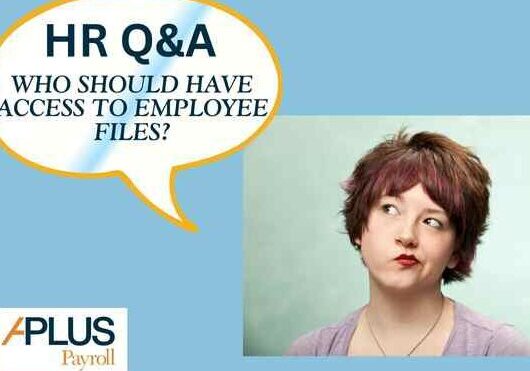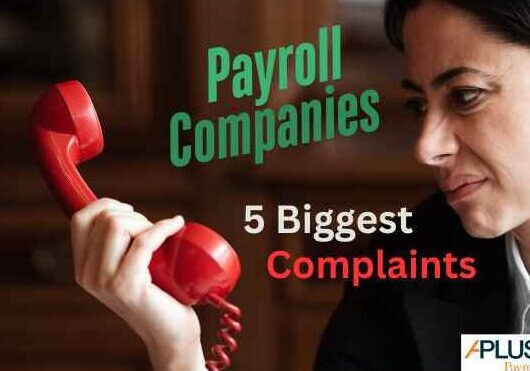Why Do Restaurants Get Sued For Back Taxes?
by Dawnie McNamee
October 2, 2024
Restaurants often face lawsuits for back taxes due to a variety of financial and regulatory challenges. Here’s why and how using a Payroll company, like APlus Payroll, can help prevent these issues:
- Complex Payroll Structure
- Tipped Employees: Many restaurant workers earn tips, making it more complex to calculate and report their income accurately. Employers must ensure that tipped wages meet the minimum wage requirements, and failing to account for tip credits properly can lead to payroll tax issues.
- Misclassification of Workers: Some restaurants improperly classify workers as independent contractors to avoid paying payroll taxes. This can lead to audits and lawsuits from tax authorities.
- Failure to Withhold and Remit Payroll Taxes
- Restaurants are responsible for withholding federal, state, and local taxes from employee wages and remitting them to the appropriate authorities. If taxes are not properly withheld, recorded, or paid on time, it can result in penalties and lawsuits from tax agencies.
- Trust Fund Recovery Penalty (TFRP): If a business owner or responsible party doesn’t remit taxes, the IRS may impose this penalty, holding them personally liable for the unpaid taxes.
- Cash Flow Issues
- Restaurants often have fluctuating revenues and tight margins, leading to cash flow problems. Sometimes, owners may use payroll tax funds for other operational costs, failing to remit them to tax authorities on time.
- Mismanagement of Payroll
- Inconsistent or inaccurate payroll processes can lead to underpayment or overpayment of taxes. If payroll records aren’t properly maintained, it can lead to disputes with tax agencies, audits, and eventually lawsuits.
- Noncompliance with Local Regulations
- Local and state taxes (such as sales tax) can vary significantly, and restaurants must stay on top of changes in tax laws. Failing to collect and remit local taxes can also result in back taxes and penalties.
How a Payroll Company Can Help Avoid Back Taxes
- Accurate Tax Withholding and Reporting
- A payroll company will ensure the correct amount of federal, state, and local taxes are withheld from each employee’s paycheck. They handle the complexities of tip income and ensure compliance with minimum wage laws, helping to avoid errors that can lead to lawsuits.
- Timely Tax Remittance
- Payroll companies handle the remittance of payroll taxes directly to tax authorities. They ensure that all deadlines are met, helping to avoid late payments, penalties, and potential legal issues. By automating the process, they reduce the risk of human error.
- Compliance with Tax Laws
- Payroll companies stay updated on changing payroll tax laws and ensure that your restaurant is compliant with federal, state, and local regulations. They can help you navigate complex laws related to tipped wages, overtime, and misclassification, reducing the risk of audits or lawsuits.
- Record-Keeping and Reporting
- Payroll companies maintain detailed records of all payroll transactions, providing you with accurate reports and data in case of an audit. Good documentation is essential for defending against tax disputes.
- Avoiding Misclassification
- A payroll company can guide you on proper worker classification (i.e., employees vs. independent contractors) and ensure that payroll taxes are paid appropriately, reducing the risk of costly lawsuits.
- Sales Tax and Other Local Tax Compliance
- Many payroll companies offer services to handle additional tax types (such as sales tax), ensuring that you’re collecting, recording, and remitting all required taxes. This helps avoid local tax disputes.
- Automating Payroll and Reducing Errors
- Automation minimizes the risk of manual errors in payroll calculations, especially in complex areas like tip reporting, overtime, and deductions. This reduces the likelihood of underpaying or overpaying taxes, which can trigger legal action
By leveraging the services of a payroll company like APlus Payroll, restaurant owners can focus more on delivering exceptional dining experiences while being assured that their payroll and tax duties are managed efficiently and compliantly. For more information contact us.
More Posts from APlus Payroll
What Is Geofencing, and How Does It Work?
Geofencing transforms the way businesses track time and attendance, particularly in industries like home healthcare, where accountability and accuracy are...
HR Q&A -Who Should Have Access to Employee Files?
Employee files contain sensitive information—from personal data to performance evaluations—that organizations have a responsibility to safeguard. Proper management of these...
What Are the Biggest Complaints About Payroll Companies?
The biggest frustration we hear from businesses all revolve around communication with their providers. While large providers might promise efficiency...
Dream Bigger, Worry Less: APlus’s Role in Small Business Growth
It’s a typical Wednesday night, and the lights are still on at Woof Tone Inn and Spa in Dallas, TX....



